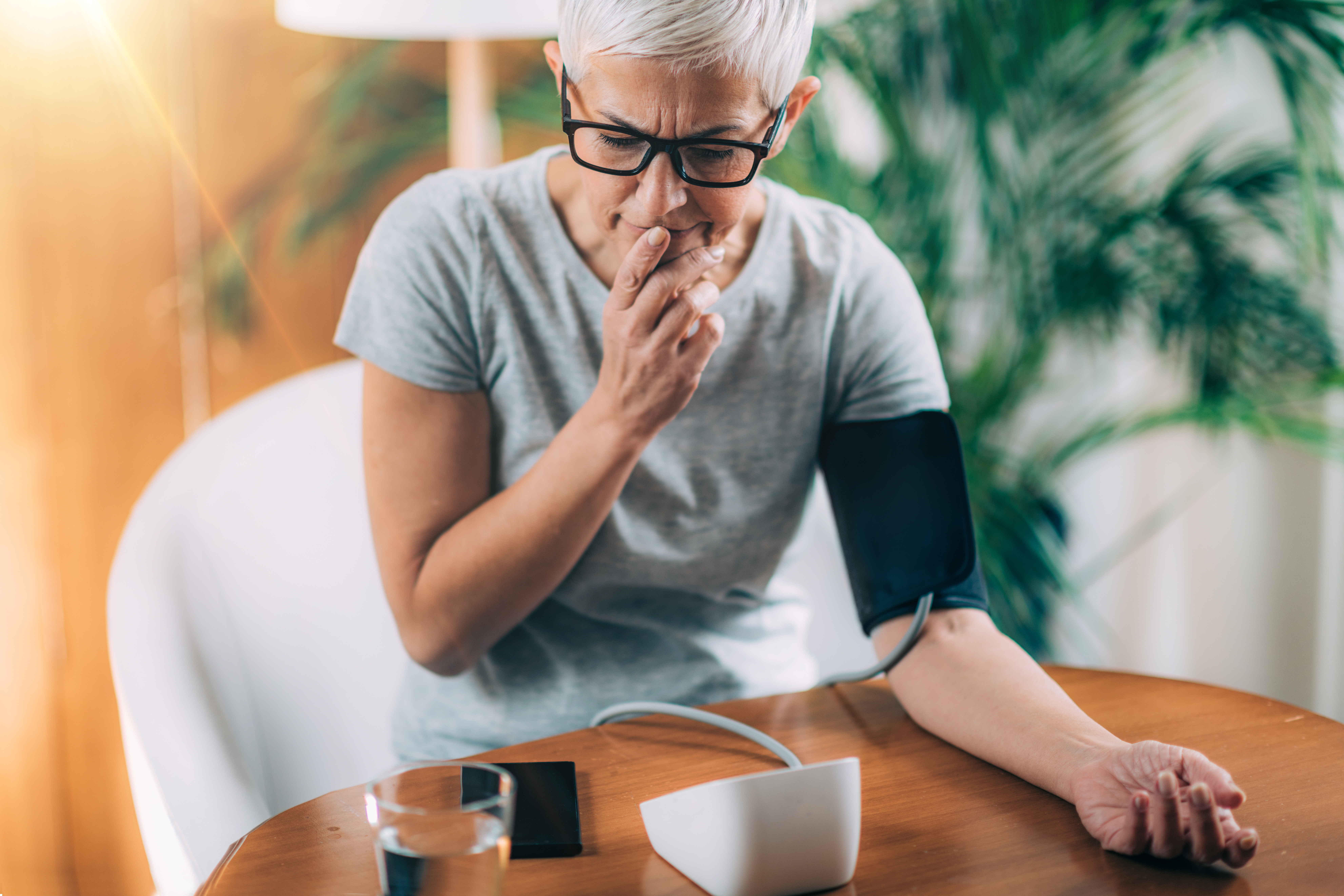
Theheart is the powerhouse of the body.As it pumps blood throughout your veins, it delivers needed oxygen to your cells.However, your circulatory system changesand becomes less efficient as you age.
These changes make seniors more vulnerable to develop heart conditions.But there is a lot that a senior can do to maintain their heart muscle and monitor their heart health from their own home.In this post we will explore some of thewaysseniors can monitor their heart.Monitor Blood PressureBlood pressure is how much pressure is applied to the arteries when your heart beats.There are actually 2 different measurements in your blood pressure.
The first number is the systolic pressure, which refers to the pressure after the heart contracts.The second number is the diastolic pressure, which refers to the blood pressure before the heart contracts.Systolic pressure is the higherblood pressure while the diastolic pressure is the lower.Normal blood pressure iscategorizedby 120/80 mm HG andless.Blood pressure levels that are higher than that are considered elevated or hypertension, generally known as high blood pressure.
Usually high blood pressure is more of a risk to seniors, but some individuals may suffer from low blood pressure as well.High blood pressure can put seniors at risk for heart disease, kidney disease, and stroke.This is a very common condition, affecting1 in 3 adultsin the United States.To measure blood pressure, seniors need a blood pressure cuff.These cuffs come in manual and automatic versions.When you take your blood pressure, its best to record your results.
There are a number ofappsavailable to record bloodpressure, but you can also use a pen and paper.This blood pressure log will provide insight to your doctor.Check PulseRateYourpulsemeasures each heartbeat.You can determine how fast or slow the heartbeats in 1 minute.A normal rate for the elderly is 60 to 100 beats per minute.This rate is the number of times your heart beats when you are calm and relaxed.
Its referred to as the resting heart rate.Changes in your heart ratemay be attributed to medications, exercise,emotions,or other factors.However, changes as you age can alsoindicate a serious heart condition.Seniors can check their pulse by feelingthe blood pump through veins in the wrist, inside of the elbow, side of the neck, or top of the foot.For an accurate reading, count the number of beats in a whole minute.You can also measure the pulse within a given set of time, like 10 or 20 seconds.
Them multiply the rate appropriately to determine how many beats per minute.If a senior wants another way to measure their pulse, they can opt for anelectronicpulse monitor.Pulse rate monitors can be standalone devices or an included function in a heart health monitor.Usually, you wear the pulse monitor around the wrist.An electronic device can give you and your doctor insight into your pulserate throughout the day instead of just a glimpse at one moment in time.Exercise RegularlyRegular exercise is a great way to keep the heart in shape.Because it is a muscle,it needs to be exercised and pushed to a higher rate regularly.
The heart can improve with just 30 minutes ofexerciseper day.You can walk, run, do yoga, swim, dance, or perform any other number of exercises as long as your heart rate rises.But you also dont want to overdo it and put too much strain on your heart.One test to determine if you are working your heart the proper amount is thetalk/sing test.If you cant talk while you exercise, then you are exercising too hard.But if you can sing while you are working out, then you arent pushing yourself hard enough.Not only can exercise help your heart, but it can also boost your mood, keep your weight down, improve balance, give you more energy, and help you sleep better at night.Watch Cholesterol LevelsCholesterol refers to a fat-like substance that the body producesand that is also found in the foods you eat.This substance is good for you in proper amounts.
It helps the body create new cells and produce hormones.However, too much cholesterol can lead to heart disease.As cholesterol raises above normal levels, it can build up on the sides of the arteries.Therefore, the arteries becomenarrowerand can easily be blocked.
The cholesterol levels can make your heart inefficient at delivering oxygen throughout your body.High cholesterol levels, however, dont have any symptoms.That means many individuals have high cholesterol without even knowing.A doctor can perform a blood test tomeasure the levels of cholesterol in the blood and help you determine if your cholesterol levels are within normal ranges.Manage Chronic ConditionsThere are many health conditions that can affect your chances of heart attack, stroke, heart disease, or other serious heart problems.
These conditions include diabetes, obesity,andhigh cholesterol, to name a few.To help maintain a healthy heart, seniors need to manage their conditions.However, it can be easy to overlook heart health when a senior is focused on a major health concern.In this case,seniors may benefit from home care.Caregivers can assist seniors in their home by performing tasks of daily living, providing medication reminders, preparinghealthymeals, and reminding seniors to monitor their heart health.By helping seniors manage chronic conditions, caregivers can help seniors keep their heart healthy too.At Caring Senior Service, our caregivers strive to keep seniors healthy, happy, and at home.They are specially trained to help seniors maintain a healthy heart and manage chronic conditions.
We would be happy to help you or a loved one monitorand even improve your heart health.To determine if home care might be a good fit, refer to our resource:10 Warning Signs that a Senior Needs Home Care.
Publisher: Caring Senior Service ( Read More )

